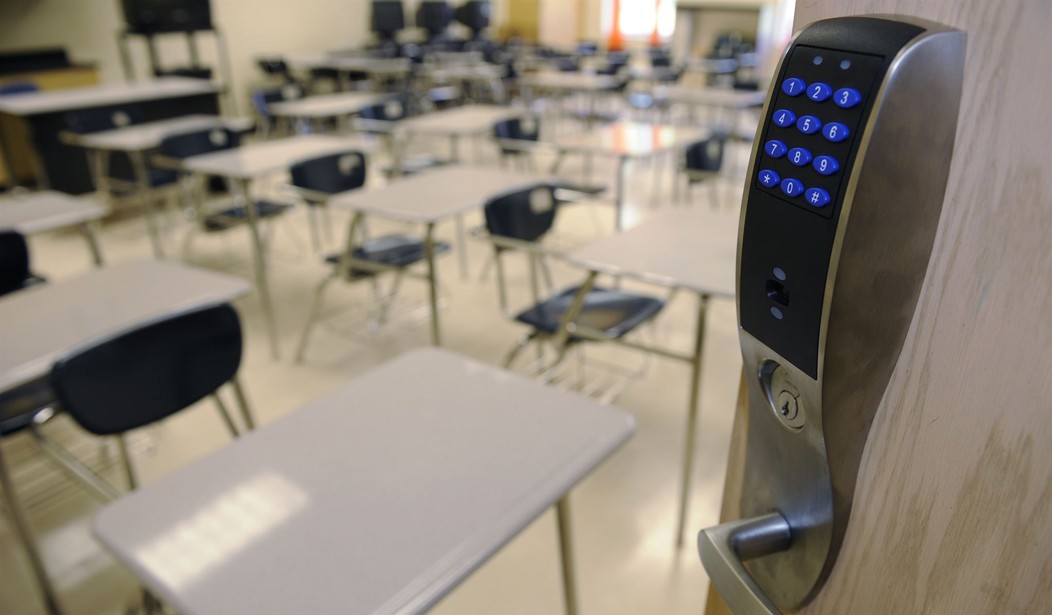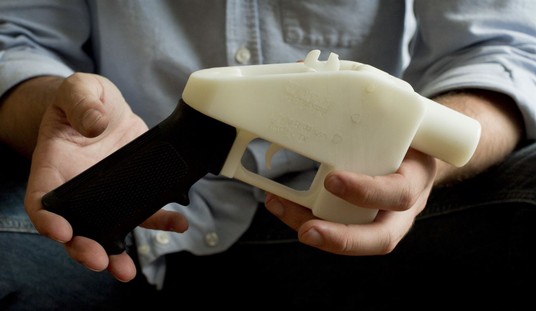With all of the anti-gun legislation that’s advancing in blue states around the country, it’s easy to overlook some of the good bills that are making progress. Constitutional Carry is now being debated on the floor of the South Carolina Senate, for instance, and the state’s sheriffs association isn’t formally opposing the measure as it did last year, which should help with some of the squishier Republicans in the upper chamber. Louisiana looks set to approve permitless carry this session as well, but we’re also seeing progress in some states when it comes to concealed carry holders serving as an additional layer of security for students in school.
On Thursday’s Bearing Arms Cam & Co, we spoke with Iowa Rep. John Wills, who’s spearheading an effort in the Hawkeye State to make it easier for districts that want armed school staffers in place to put those policies in effect. As we were having our conversation, lawmakers in two other states advanced legislation that would open the door for their own local school districts to adopt similar policies. In West Virginia, the House Education Committee approved HB 4299, which allows districts to appoint teachers, administrators, and support staff as School Protection Officers once they’re vetted and trained. Unlike many other states that have similar policies in place, the West Virginia bill appropriates $5,000 for each school district in the state to help cover the cost of training; which is great to see. Those folks who are serving as SPOs are already doing so on a voluntary basis, and while I’m not in favor of giving teachers additional money if they choose to participate, they definitely shouldn’t have to pay out of their own pocket to undergo the mandated training.
In Idaho on Thursday, meanwhile the House State Affairs Committee signed off on HB 415, which would allow school staff who possess a valid enhanced carry permit to lawfully carry concealed on school grounds as long as they inform the principal and superintendent of their decision to do so. Local and state law enforcement would also be made aware of any and all staffers who choose to carry for protection of the students in their care “in order to assist law enforcement officers 3 in the exercise of their duties”; basically, letting police know who the good guys and gals are if they have to respond to a shooting on campus.
Currently, individual school districts in Idaho can and do regulate whether teachers can carry firearms while at school.
The bill states school employees who decide to carry a concealed weapon on school property must have an enhanced concealed carry license and follow the laws regulating the proper use. Idahoans must take an eight-hour course on state firearm laws and practice shooting with at least 98 rounds in order to get an enhanced license, according to Idaho code.
It also has civil protections for those who choose to carry, stating that if a teacher fails to protect a child in an active shooter situation, the child’s family cannot sue the teacher.
Lobbyists with the National Rifle Association (NRA) have spoken out in support of the bill, saying it would only apply to someone who is contracted. However, Democrats argue the bill doesn’t make the distinction.
The bill specifically states that “a school employee who possesses an enhanced license to carry concealed weapons” can do so on campus, not just the general public (though lawful gun owners already have the ability to have their firearm in their vehicle with them when dropping off and picking up their kids. The big change in the legislation is that school districts wouldn’t have the authority to opt-out or opt-in to having armed school staffers. So long as those employees possess a valid enhanced carry license and let administrators know of their decision to carry they can do so.
HB 415 is heading to the House floor for a vote in coming days, while the West Virginia bill still needs to be heard by the House Judiciary Committee before hitting the floor. Both bills appear to be in pretty good shape at the moment, and that’s great news; not only for students and staff, but for parents who want to know that if there is a targeted attack on their child’s school there’s a good chance of an immediate armed response instead of having to wait precious minutes for law enforcement to arrive.









Join the conversation as a VIP Member